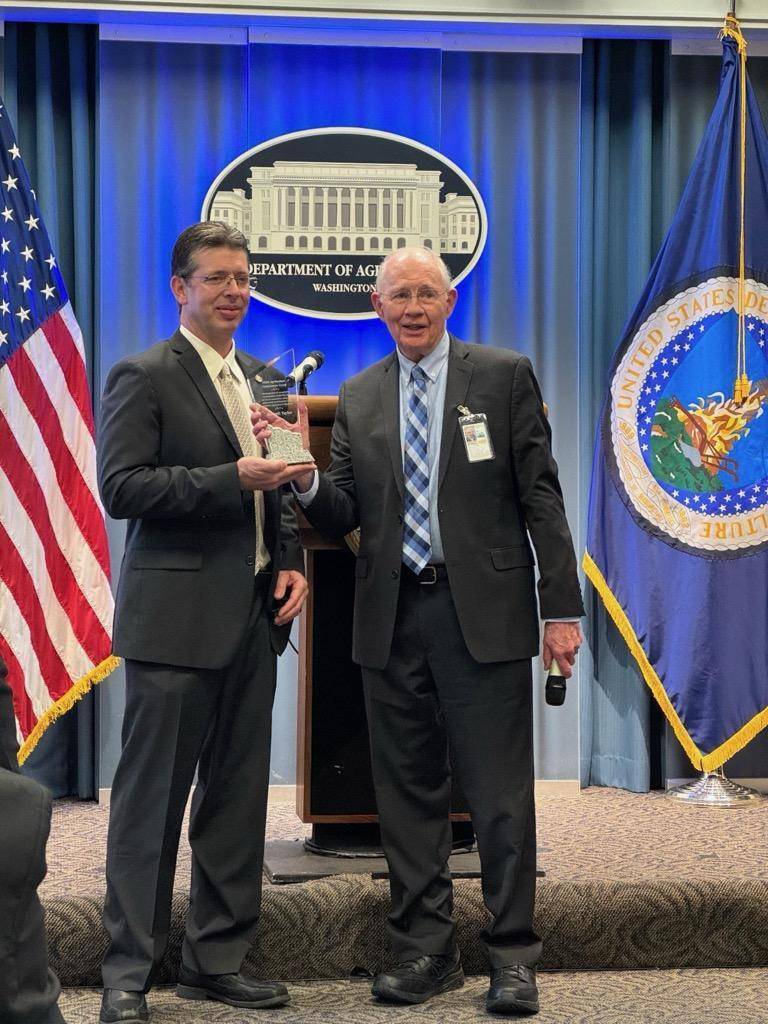Press Release
Russell Taylor of Emery, Utah was named this year’s recipient of the Certified Crop Adviser (CCA) Conservationist of the Year Award.
The 2023 award is supported by the signatory members of the Memorandum of Understanding, including USDA-Natural Resources Conservation Service (NRCS), Agricultural Retailers Association, American Society of Agronomy, CropLife America, Crop Science Society of America, National Association of Conservation Districts, National Association of State Departments of Agriculture, Soil Science Society of America, and The Fertilizer Institute. The American Society of Agronomy administers the award, and the award was given during a ceremony on Dec. 5 hosted by the United States Department of Agriculture (USDA).
The CCA Conservationist of the Year Award annually recognizes a certified crop adviser who exhibits dedication to exceptional conservation delivery and customer service and has shown to be a leader in their industry.
This year’s award recognizes Taylor, who has been a part of the CCA program for 10 years and holds 24 years of crop advising experience. Taylor is with Live Earth Products Inc., a family-run business, which mines and manufactures humic acid and fulvic acid-based products. In his career, Taylor has focused on work to help change agriculture by embracing natural conservation practices and improving soil health.
“Conservation is more than working in the field,” Taylor said. “Conservation is also reshaping the rules that prevent farmers from accessing products and information that aid conservation. Getting CCAs and researchers’ expanded knowledge is essential to accomplish our goal of helping farmers.”
In his efforts to change agricultural laws, Taylor has worked with the Association of American Plant Food Control Officials (AAPFCO), advocating for categories of products beyond basic chemical fertilizers. He has also worked with the USDA drafting language for the farm bill that helps products that, when applied to seeds, plants, or the rhizosphere, stimulate natural processes to enhance or benefit nutrient uptake, nutrient efficiency, tolerance to abiotic stress, or crop quality and yield.
Part of Taylor’s work responsibility is to promote advocacy to groups like residential landscape managers to implement nutrient and water conservation practices. He finds conservation practices conducted by CCAs are often welcomed by landscape architects to improve current work methods.




